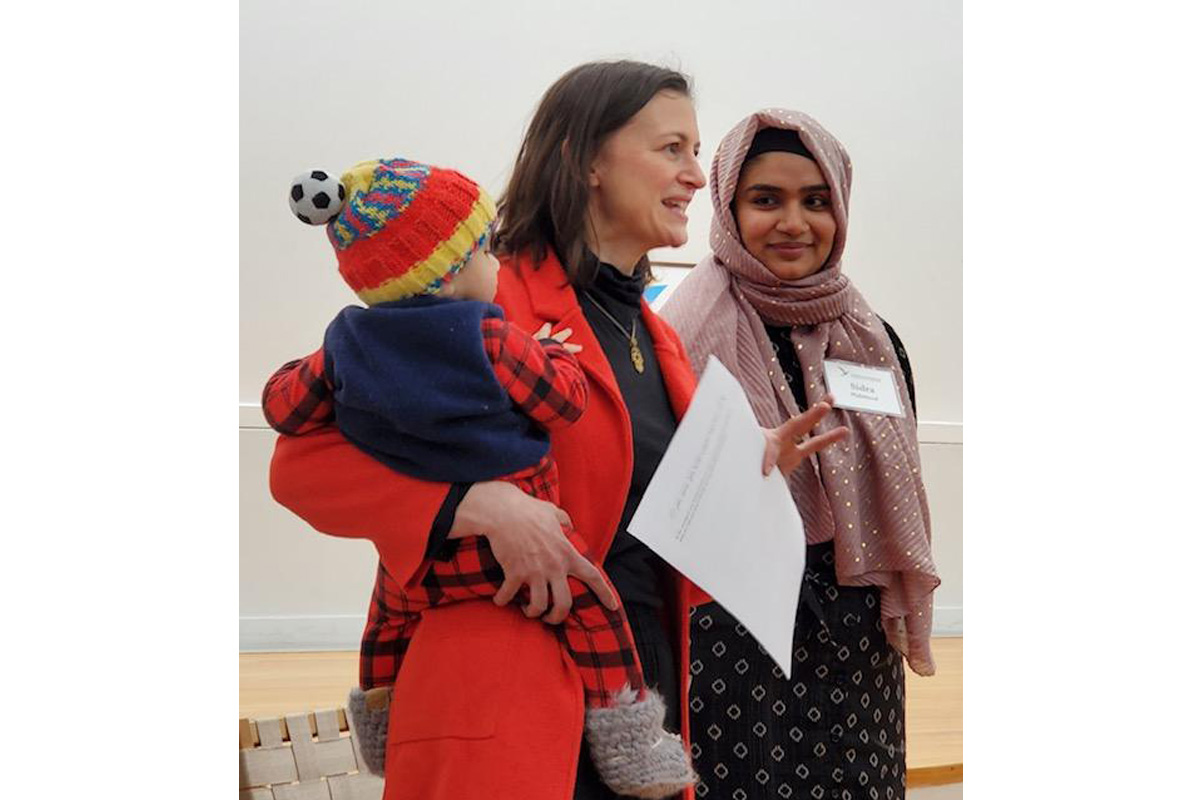Jewish and Muslim Chaplains Gather and Connect at ‘Chaplains of the Book’ Conference

On March 15, Hartford International University for Religion and Peace hosted a gathering that may have been the first of its kind.
“Chaplains of the Book” brought Jewish and Muslim chaplains together for a daylong conference to network and learn from each other as representatives of minority religious communities in the U.S.
Rabbi Neal Joseph Loevinger, director of spiritual care at a hospital in the Hudson Valley and Doctor of Ministry student at HIU, had the idea for the conference.
“As an interfaith chaplain who is visibly not Christian, I’ve had all kinds of unexpected conversations about Judaism, and people’s misconceptions of it, with patients, their families, and staff. I’ve long had the feeling that this must be true for Muslim chaplains as well, and that we could learn from each other how to retain our integrity and identity while also advocating for other minority religious communities in our institutions.”
Neal is also the Vice-President of Neshama: Association of Jewish Chaplains, whose leadership is always eager to engage in dialogue and mutual support with other chaplain groups.
Chaplains from Jewish and Muslim Traditions Come Together
The two dozen chaplains who traveled from across the country for the conference were about evenly divided, Jews and Muslims representing different denominations and communities. A few were Hartford International University students, but most were chaplains working at a variety of positions in the usual venues for chaplains: health care, the military, prisons, higher education, and community settings.
What they had in common was the experience of serving as chaplains in institutions that are typically majority Christian. Throughout the day, stories were exchanged. Several told of how they had to break the ice with families or clients who were from traditions other than their own, and ultimately, how they managed to find their common humanity and provide spiritual guidance.
Creating Allies From Different Faiths
The intent of the conference was also to create allies. When chaplains have strong connections to colleagues of different faiths, they can call on them for professional support in advocating for the needs of diverse communities within their institutions.
One of the most compelling images of the day was that of two of our chaplaincy students, above, one Jewish and one Muslim, joining together to deliver a community prayer service during the conference. Friends from taking many classes together, both also came from parts of New England that had just experienced a massive snowstorm. Both had lost power for two days just prior to the conference.
As the Muslim chaplaincy student delivered her prayers during the service, the Jewish chaplaincy student held her friend’s baby, who has been joining classes, both on Zoom and in person, for the duration of his short life. The closeness of their friendship was a compelling example of how education in an interreligious setting can ease misunderstandings and nurture relationships strong enough to weather differences.
This groundbreaking event was sponsored by Neshama: Association of Jewish Chaplains, The Association of Muslim Chaplains, Ziyara Muslim Spiritual Care Services, and Hartford International University for Religion and Peace. Many of the participants, though not all, were students or alumni of Hartford International’s Islamic Chaplaincy Program or its MA in Chaplaincy.
It was a day to share the challenges, joys, spirituality, and religious fulfillment of offering spiritual care through the prism of the chaplains’ respective faith traditions, and we hope that it’s the first of many such gatherings.
Tags: interfaith chaplaincy, what jewish and muslim chaplains can learn from each other
